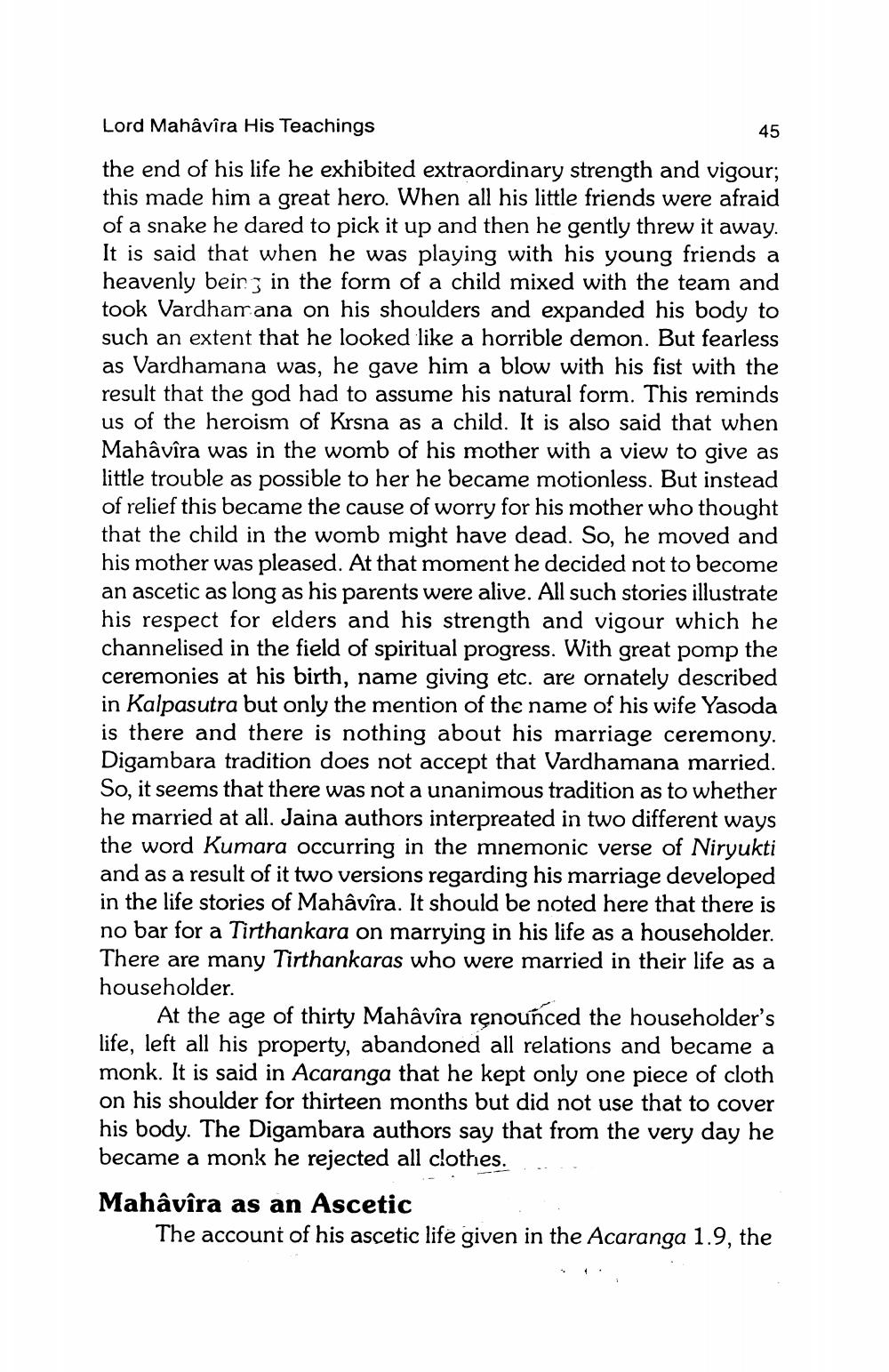________________
Lord Mahavira His Teachings
45
the end of his life he exhibited extraordinary strength and vigour; this made him a great hero. When all his little friends were afraid of a snake he dared to pick it up and then he gently threw it away. It is said that when he was playing with his young friends a heavenly being in the form of a child mixed with the team and took Vardham ana on his shoulders and expanded his body to such an extent that he looked like a horrible demon. But fearless as Vardhamana was, he gave him a blow with his fist with the result that the god had to assume his natural form. This reminds us of the heroism of Krsna as a child. It is also said that when Mahâvîra was in the womb of his mother with a view to give as little trouble as possible to her he became motionless. But instead of relief this became the cause of worry for his mother who thought that the child in the womb might have dead. So, he moved and his mother was pleased. At that moment he decided not to become an ascetic as long as his parents were alive. All such stories illustrate his respect for elders and his strength and vigour which he channelised in the field of spiritual progress. With great pomp the ceremonies at his birth, name giving etc. are ornately described in Kalpasutra but only the mention of the name of his wife Yasoda is there and there is nothing about his marriage ceremony. Digambara tradition does not accept that Vardhamana married. So, it seems that there was not a unanimous tradition as to whether he married at all. Jaina authors interpreated in two different ways the word Kumara occurring in the mnemonic verse of Niryukti and as a result of it two versions regarding his marriage developed in the life stories of Mahâvîra. It should be noted here that there is no bar for a Tirthankara on marrying in his life as a householder. There are many Tirthankaras who were married in their life as a householder.
At the age of thirty Mahâvîra renounced the householder's life, left all his property, abandoned all relations and became a monk. It is said in Acaranga that he kept only one piece of cloth on his shoulder for thirteen months but did not use that to cover his body. The Digambara authors say that from the very day he became a monk he rejected all clothes.
Mahâvîra as an Ascetic
The account of his ascetic life given in the Acaranga 1.9, the




